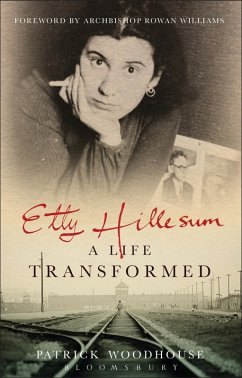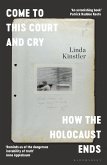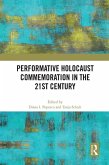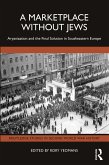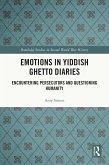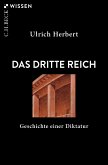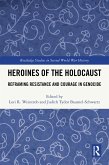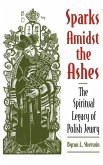Patrick Woodhouse
Etty Hillesum: A Life Transformed (eBook, PDF)
11,95 €
11,95 €
inkl. MwSt.
Sofort per Download lieferbar

6 °P sammeln
11,95 €
Als Download kaufen

11,95 €
inkl. MwSt.
Sofort per Download lieferbar

6 °P sammeln
Jetzt verschenken
Alle Infos zum eBook verschenken
11,95 €
inkl. MwSt.
Sofort per Download lieferbar
Alle Infos zum eBook verschenken

6 °P sammeln
Patrick Woodhouse
Etty Hillesum: A Life Transformed (eBook, PDF)
- Format: PDF
- Merkliste
- Auf die Merkliste
- Bewerten Bewerten
- Teilen
- Produkt teilen
- Produkterinnerung
- Produkterinnerung

Bitte loggen Sie sich zunächst in Ihr Kundenkonto ein oder registrieren Sie sich bei
bücher.de, um das eBook-Abo tolino select nutzen zu können.
Hier können Sie sich einloggen
Hier können Sie sich einloggen
Sie sind bereits eingeloggt. Klicken Sie auf 2. tolino select Abo, um fortzufahren.

Bitte loggen Sie sich zunächst in Ihr Kundenkonto ein oder registrieren Sie sich bei bücher.de, um das eBook-Abo tolino select nutzen zu können.
On 8 March 1941, a 27-year-old Jewish Dutch student living in Nazi-occupied Amsterdam made the first entry in a diary that was to become one of the most remarkable documents to emerge from the Nazi Holocaust. Over the course of the next two and a half years, an insecure, chaotic and troubled young woman was transformed into someone who inspired those with whom she shared the suffering of the transit camp at Westerbork and with whom she eventually perished at Auschwitz. Through her diary and letters, she continues to inspire those whose lives she has touched since. She was an extraordinarily…mehr
- Geräte: PC
- ohne Kopierschutz
- eBook Hilfe
- Größe: 1.16MB
Andere Kunden interessierten sich auch für
![Come to This Court and Cry (eBook, PDF) Come to This Court and Cry (eBook, PDF)]() Linda KinstlerCome to This Court and Cry (eBook, PDF)7,99 €
Linda KinstlerCome to This Court and Cry (eBook, PDF)7,99 €![Performative Holocaust Commemoration in the 21st Century (eBook, PDF) Performative Holocaust Commemoration in the 21st Century (eBook, PDF)]() Performative Holocaust Commemoration in the 21st Century (eBook, PDF)42,95 €
Performative Holocaust Commemoration in the 21st Century (eBook, PDF)42,95 €![A Marketplace Without Jews (eBook, PDF) A Marketplace Without Jews (eBook, PDF)]() A Marketplace Without Jews (eBook, PDF)39,95 €
A Marketplace Without Jews (eBook, PDF)39,95 €![Emotions in Yiddish Ghetto Diaries (eBook, PDF) Emotions in Yiddish Ghetto Diaries (eBook, PDF)]() Amy SimonEmotions in Yiddish Ghetto Diaries (eBook, PDF)42,95 €
Amy SimonEmotions in Yiddish Ghetto Diaries (eBook, PDF)42,95 €![Das Dritte Reich (eBook, PDF) Das Dritte Reich (eBook, PDF)]() Ulrich HerbertDas Dritte Reich (eBook, PDF)9,99 €
Ulrich HerbertDas Dritte Reich (eBook, PDF)9,99 €![Heroines of the Holocaust (eBook, PDF) Heroines of the Holocaust (eBook, PDF)]() Heroines of the Holocaust (eBook, PDF)42,95 €
Heroines of the Holocaust (eBook, PDF)42,95 €![Sparks Amidst the Ashes (eBook, PDF) Sparks Amidst the Ashes (eBook, PDF)]() Byron L. SherwinSparks Amidst the Ashes (eBook, PDF)54,95 €
Byron L. SherwinSparks Amidst the Ashes (eBook, PDF)54,95 €-
-
-
On 8 March 1941, a 27-year-old Jewish Dutch student living in Nazi-occupied Amsterdam made the first entry in a diary that was to become one of the most remarkable documents to emerge from the Nazi Holocaust. Over the course of the next two and a half years, an insecure, chaotic and troubled young woman was transformed into someone who inspired those with whom she shared the suffering of the transit camp at Westerbork and with whom she eventually perished at Auschwitz. Through her diary and letters, she continues to inspire those whose lives she has touched since. She was an extraordinarily alive and vivid young woman who shaped and lived a spirituality of hope in the darkest period of the twentieth century. This book explores Etty Hillesum's life and writings, seeking to understand what it was about her that was so remarkable, how her journey developed, how her spirituality was shaped, and what her profound reflections on the roots of violence and the nature of evil can teach us today.
Produktdetails
- Produktdetails
- Verlag: Bloomsbury UK eBooks
- Seitenzahl: 176
- Erscheinungstermin: 29. Januar 2009
- Englisch
- ISBN-13: 9781441103598
- Artikelnr.: 38445155
- Verlag: Bloomsbury UK eBooks
- Seitenzahl: 176
- Erscheinungstermin: 29. Januar 2009
- Englisch
- ISBN-13: 9781441103598
- Artikelnr.: 38445155
- Herstellerkennzeichnung Die Herstellerinformationen sind derzeit nicht verfügbar.
Patrick Woodhouse is a writer and Anglican priest. He was for thirteen years a Canon of Wells Cathedral. He has also been a parish priest, and a social responsibility adviser in two Anglican dioceses. He is the author of Etty Hillesum, a Life Transformed (Bloomsbury Continuum 2009). He lives in Somerset.
Introduction Why the diary and letters of this inspirational young woman
who died in the Holocaust are of such significance and speak beyond her own
time and context. Who was Etty Hillesum? A brief biographical outline, and
the background and chronology of her life Chapter 1: An Emerging Self
Explores the process of profound personal change that occurred in Etty.
Within her intimate relationship with her therapist Julius Spier she
grappled with the chaotic complexity of her intense personality against the
background of her disturbed family and fearful times, and moved from an
insecure and depressive past towards an integrated self. It examines her
relationship with Spier and his crucial importance in enabling her to
change. Chapter 2: Discovering God This chapter explores the beginnings of
Etty's spirituality, looking at how understandings of prayer and God slowly
took root and grew in her, her formation as the child of a liberal Jewish
background, her secular student days and the gradual development of her
contemplative life. It touches on her surprise and embarrassment at her
strongly emerging religious consciousness -- a deep sense of the intimate
life of God within. As she faced up to her own end and the destruction of
her people, the realisation dawned upon her that God was unable to help
them and so, she says, 'they must help Him' and, if they are to retain
their integrity as human beings 'guard his Presence within them at all
costs'. This chapter explores how this insight, with its profound
theological significance, connects with understandings of God in the
Christian and other traditions. Chapter 3: Refusing to hate Etty wrote a
lot about hatred. This chapter looks at her refusal to hate and goes on to
explore the phenomenon of hatred and its function in the collective mind of
a persecuted people -- how it galvanises and unites, helping people to cope
with their fear, but is ultimately an avoidance and displacement mechanism
which Etty believed was profoundly destructive. Determined to hate "only
the evil that is within me", Etty wrote of what it meant to bear fear and
suffering, absorbing and accepting it rather than turning it back on those
causing it. This understanding produced some of her most profound writing
and makes her a universal figure, able to identify with all who suffer,
including 'German mothers for they too sorrow for their slain and murdered
sons'. Chapter 4: Losing her life As the persecutions intensified, many
Jews clung to life and struggled to avoid their destruction. Along with her
refusal to hate, Etty refused to hide or to evade what she saw coming. Her
clear-eyed acceptance of the end and her refusal to clutch at illusions
grew out of her commitment to truth and to living in the present rather
than in fear of the future. "It sounds paradoxical," she wrote, "but by
excluding death from our life we cannot live a full life... and by
admitting death into our life we enlarge and enrich it." This chapter
reflects on this paradox and its place in other religious traditions.
Chapter 5: Seeing Differently Etty's greatest fear was that she would
sleep-walk into death, that numbness would overcome her. Her triumph was to
show that the reality of the Holocaust - the power of a terrible hatred
against the Jews - was not the only or final reality. She saw and lived
from other realities in the midst of the hell around her and in the end was
neither captive to, nor overwhelmed by the darkness. This chapter goes to
the heart of the paradox that enabled her - surrounded by death - to be a
source of care and compassion for others and to continue to insist that
life was meaningful and beautiful and, as she set out on her final journey
to Auschwitz, to "leave the camp singing". Chapter 6: A woman for our time
At a time of decline in institutional religion, Etty is a curiously modern
person. Her route into spirituality is initially through psychotherapy and
the exploration of the self. She sees the world through the prism of the
person: systems of thought claiming 'the truth' inevitably contain
falsehood and divide people. Suspicious of religious or political ideology,
she sees the struggle for peace and a new world rooted in personal change.
She is ecumenical in the widest sense, bridging the differences between
religions. She was a Jew who drew inspiration from the New Testament, from
St Augustine, from Russian writers, from Jung and above all from Rilke. She
forged a spirituality that connects and resonates with aspects from all the
great religious traditions - not only Judaism and Christianity, but also
Buddhism and Hinduism. She lived and died at a time of mass violence. Her
diaries and letters are an extended reflection on what it means to be fully
human in the midst of violence and the temptations of violence, and she
looks beyond the violence of her time to a new world.
who died in the Holocaust are of such significance and speak beyond her own
time and context. Who was Etty Hillesum? A brief biographical outline, and
the background and chronology of her life Chapter 1: An Emerging Self
Explores the process of profound personal change that occurred in Etty.
Within her intimate relationship with her therapist Julius Spier she
grappled with the chaotic complexity of her intense personality against the
background of her disturbed family and fearful times, and moved from an
insecure and depressive past towards an integrated self. It examines her
relationship with Spier and his crucial importance in enabling her to
change. Chapter 2: Discovering God This chapter explores the beginnings of
Etty's spirituality, looking at how understandings of prayer and God slowly
took root and grew in her, her formation as the child of a liberal Jewish
background, her secular student days and the gradual development of her
contemplative life. It touches on her surprise and embarrassment at her
strongly emerging religious consciousness -- a deep sense of the intimate
life of God within. As she faced up to her own end and the destruction of
her people, the realisation dawned upon her that God was unable to help
them and so, she says, 'they must help Him' and, if they are to retain
their integrity as human beings 'guard his Presence within them at all
costs'. This chapter explores how this insight, with its profound
theological significance, connects with understandings of God in the
Christian and other traditions. Chapter 3: Refusing to hate Etty wrote a
lot about hatred. This chapter looks at her refusal to hate and goes on to
explore the phenomenon of hatred and its function in the collective mind of
a persecuted people -- how it galvanises and unites, helping people to cope
with their fear, but is ultimately an avoidance and displacement mechanism
which Etty believed was profoundly destructive. Determined to hate "only
the evil that is within me", Etty wrote of what it meant to bear fear and
suffering, absorbing and accepting it rather than turning it back on those
causing it. This understanding produced some of her most profound writing
and makes her a universal figure, able to identify with all who suffer,
including 'German mothers for they too sorrow for their slain and murdered
sons'. Chapter 4: Losing her life As the persecutions intensified, many
Jews clung to life and struggled to avoid their destruction. Along with her
refusal to hate, Etty refused to hide or to evade what she saw coming. Her
clear-eyed acceptance of the end and her refusal to clutch at illusions
grew out of her commitment to truth and to living in the present rather
than in fear of the future. "It sounds paradoxical," she wrote, "but by
excluding death from our life we cannot live a full life... and by
admitting death into our life we enlarge and enrich it." This chapter
reflects on this paradox and its place in other religious traditions.
Chapter 5: Seeing Differently Etty's greatest fear was that she would
sleep-walk into death, that numbness would overcome her. Her triumph was to
show that the reality of the Holocaust - the power of a terrible hatred
against the Jews - was not the only or final reality. She saw and lived
from other realities in the midst of the hell around her and in the end was
neither captive to, nor overwhelmed by the darkness. This chapter goes to
the heart of the paradox that enabled her - surrounded by death - to be a
source of care and compassion for others and to continue to insist that
life was meaningful and beautiful and, as she set out on her final journey
to Auschwitz, to "leave the camp singing". Chapter 6: A woman for our time
At a time of decline in institutional religion, Etty is a curiously modern
person. Her route into spirituality is initially through psychotherapy and
the exploration of the self. She sees the world through the prism of the
person: systems of thought claiming 'the truth' inevitably contain
falsehood and divide people. Suspicious of religious or political ideology,
she sees the struggle for peace and a new world rooted in personal change.
She is ecumenical in the widest sense, bridging the differences between
religions. She was a Jew who drew inspiration from the New Testament, from
St Augustine, from Russian writers, from Jung and above all from Rilke. She
forged a spirituality that connects and resonates with aspects from all the
great religious traditions - not only Judaism and Christianity, but also
Buddhism and Hinduism. She lived and died at a time of mass violence. Her
diaries and letters are an extended reflection on what it means to be fully
human in the midst of violence and the temptations of violence, and she
looks beyond the violence of her time to a new world.
Introduction Why the diary and letters of this inspirational young woman
who died in the Holocaust are of such significance and speak beyond her own
time and context. Who was Etty Hillesum? A brief biographical outline, and
the background and chronology of her life Chapter 1: An Emerging Self
Explores the process of profound personal change that occurred in Etty.
Within her intimate relationship with her therapist Julius Spier she
grappled with the chaotic complexity of her intense personality against the
background of her disturbed family and fearful times, and moved from an
insecure and depressive past towards an integrated self. It examines her
relationship with Spier and his crucial importance in enabling her to
change. Chapter 2: Discovering God This chapter explores the beginnings of
Etty's spirituality, looking at how understandings of prayer and God slowly
took root and grew in her, her formation as the child of a liberal Jewish
background, her secular student days and the gradual development of her
contemplative life. It touches on her surprise and embarrassment at her
strongly emerging religious consciousness -- a deep sense of the intimate
life of God within. As she faced up to her own end and the destruction of
her people, the realisation dawned upon her that God was unable to help
them and so, she says, 'they must help Him' and, if they are to retain
their integrity as human beings 'guard his Presence within them at all
costs'. This chapter explores how this insight, with its profound
theological significance, connects with understandings of God in the
Christian and other traditions. Chapter 3: Refusing to hate Etty wrote a
lot about hatred. This chapter looks at her refusal to hate and goes on to
explore the phenomenon of hatred and its function in the collective mind of
a persecuted people -- how it galvanises and unites, helping people to cope
with their fear, but is ultimately an avoidance and displacement mechanism
which Etty believed was profoundly destructive. Determined to hate "only
the evil that is within me", Etty wrote of what it meant to bear fear and
suffering, absorbing and accepting it rather than turning it back on those
causing it. This understanding produced some of her most profound writing
and makes her a universal figure, able to identify with all who suffer,
including 'German mothers for they too sorrow for their slain and murdered
sons'. Chapter 4: Losing her life As the persecutions intensified, many
Jews clung to life and struggled to avoid their destruction. Along with her
refusal to hate, Etty refused to hide or to evade what she saw coming. Her
clear-eyed acceptance of the end and her refusal to clutch at illusions
grew out of her commitment to truth and to living in the present rather
than in fear of the future. "It sounds paradoxical," she wrote, "but by
excluding death from our life we cannot live a full life... and by
admitting death into our life we enlarge and enrich it." This chapter
reflects on this paradox and its place in other religious traditions.
Chapter 5: Seeing Differently Etty's greatest fear was that she would
sleep-walk into death, that numbness would overcome her. Her triumph was to
show that the reality of the Holocaust - the power of a terrible hatred
against the Jews - was not the only or final reality. She saw and lived
from other realities in the midst of the hell around her and in the end was
neither captive to, nor overwhelmed by the darkness. This chapter goes to
the heart of the paradox that enabled her - surrounded by death - to be a
source of care and compassion for others and to continue to insist that
life was meaningful and beautiful and, as she set out on her final journey
to Auschwitz, to "leave the camp singing". Chapter 6: A woman for our time
At a time of decline in institutional religion, Etty is a curiously modern
person. Her route into spirituality is initially through psychotherapy and
the exploration of the self. She sees the world through the prism of the
person: systems of thought claiming 'the truth' inevitably contain
falsehood and divide people. Suspicious of religious or political ideology,
she sees the struggle for peace and a new world rooted in personal change.
She is ecumenical in the widest sense, bridging the differences between
religions. She was a Jew who drew inspiration from the New Testament, from
St Augustine, from Russian writers, from Jung and above all from Rilke. She
forged a spirituality that connects and resonates with aspects from all the
great religious traditions - not only Judaism and Christianity, but also
Buddhism and Hinduism. She lived and died at a time of mass violence. Her
diaries and letters are an extended reflection on what it means to be fully
human in the midst of violence and the temptations of violence, and she
looks beyond the violence of her time to a new world.
who died in the Holocaust are of such significance and speak beyond her own
time and context. Who was Etty Hillesum? A brief biographical outline, and
the background and chronology of her life Chapter 1: An Emerging Self
Explores the process of profound personal change that occurred in Etty.
Within her intimate relationship with her therapist Julius Spier she
grappled with the chaotic complexity of her intense personality against the
background of her disturbed family and fearful times, and moved from an
insecure and depressive past towards an integrated self. It examines her
relationship with Spier and his crucial importance in enabling her to
change. Chapter 2: Discovering God This chapter explores the beginnings of
Etty's spirituality, looking at how understandings of prayer and God slowly
took root and grew in her, her formation as the child of a liberal Jewish
background, her secular student days and the gradual development of her
contemplative life. It touches on her surprise and embarrassment at her
strongly emerging religious consciousness -- a deep sense of the intimate
life of God within. As she faced up to her own end and the destruction of
her people, the realisation dawned upon her that God was unable to help
them and so, she says, 'they must help Him' and, if they are to retain
their integrity as human beings 'guard his Presence within them at all
costs'. This chapter explores how this insight, with its profound
theological significance, connects with understandings of God in the
Christian and other traditions. Chapter 3: Refusing to hate Etty wrote a
lot about hatred. This chapter looks at her refusal to hate and goes on to
explore the phenomenon of hatred and its function in the collective mind of
a persecuted people -- how it galvanises and unites, helping people to cope
with their fear, but is ultimately an avoidance and displacement mechanism
which Etty believed was profoundly destructive. Determined to hate "only
the evil that is within me", Etty wrote of what it meant to bear fear and
suffering, absorbing and accepting it rather than turning it back on those
causing it. This understanding produced some of her most profound writing
and makes her a universal figure, able to identify with all who suffer,
including 'German mothers for they too sorrow for their slain and murdered
sons'. Chapter 4: Losing her life As the persecutions intensified, many
Jews clung to life and struggled to avoid their destruction. Along with her
refusal to hate, Etty refused to hide or to evade what she saw coming. Her
clear-eyed acceptance of the end and her refusal to clutch at illusions
grew out of her commitment to truth and to living in the present rather
than in fear of the future. "It sounds paradoxical," she wrote, "but by
excluding death from our life we cannot live a full life... and by
admitting death into our life we enlarge and enrich it." This chapter
reflects on this paradox and its place in other religious traditions.
Chapter 5: Seeing Differently Etty's greatest fear was that she would
sleep-walk into death, that numbness would overcome her. Her triumph was to
show that the reality of the Holocaust - the power of a terrible hatred
against the Jews - was not the only or final reality. She saw and lived
from other realities in the midst of the hell around her and in the end was
neither captive to, nor overwhelmed by the darkness. This chapter goes to
the heart of the paradox that enabled her - surrounded by death - to be a
source of care and compassion for others and to continue to insist that
life was meaningful and beautiful and, as she set out on her final journey
to Auschwitz, to "leave the camp singing". Chapter 6: A woman for our time
At a time of decline in institutional religion, Etty is a curiously modern
person. Her route into spirituality is initially through psychotherapy and
the exploration of the self. She sees the world through the prism of the
person: systems of thought claiming 'the truth' inevitably contain
falsehood and divide people. Suspicious of religious or political ideology,
she sees the struggle for peace and a new world rooted in personal change.
She is ecumenical in the widest sense, bridging the differences between
religions. She was a Jew who drew inspiration from the New Testament, from
St Augustine, from Russian writers, from Jung and above all from Rilke. She
forged a spirituality that connects and resonates with aspects from all the
great religious traditions - not only Judaism and Christianity, but also
Buddhism and Hinduism. She lived and died at a time of mass violence. Her
diaries and letters are an extended reflection on what it means to be fully
human in the midst of violence and the temptations of violence, and she
looks beyond the violence of her time to a new world.
